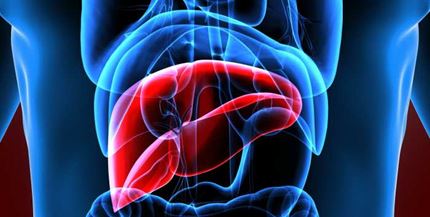In this issue of Neurosurgery News several specialists join together to discuss topics that include patient satisfaction scores in spine surgery, building a world-class brain tumor bank at UPMC, symptomatic carotid dissections, treating orofacial pain, and using art to help stroke survivors cope and recover.
Educational objectives:
Upon completion of this activity, participants should be able to:
- Evaluate the complexities of the use of patient satisfaction surveys
- Discern the medical economic factors affecting patient satisfaction ratings
- Improve their comprehension of patient satisfaction surveys
- Determine the components of an advanced brain tumor bank
- Improve physician’s understanding of the molecular basis of trigeminal neuralgia
- Increase awareness regarding the need for more specifically-tailored MRI sequences in patients with trigeminal neuralgia prior to consideration of an operation
Reading Resources:
- Predictors of Revision Surgical Procedure Excluding Wound Complications in Adult Spinal Deformity and Impact on Patient-Reported Outcomes and Satisfaction: A Two-Year Follow-up. Passias PG, Soroceanu A, Yang S, Schwab F, Ames C, Boniello A, Smith J, Shaffrey C, Boachie-Adjei O, Mundis G, Burton D, Klineberg E, Hart R, Hamilton DK, Sciubba DM, Bess S, Lafage V. J Bone Joint Surg Am. 2016 Apr 6;98(7):536-43. doi: 10.2106/JBJS.14.01126
- Patient Satisfaction After Adult Spinal Deformity Surgery Does Not Strongly Correlate With Health-Related Quality of Life Scores, Radiographic Parameters, or Occurrence of Complications Hamilton DK, Kong C, Hiratzka J, Contag AG, Ailon T, Line B, Daniels A, Smith JS, Passias P, Protopsaltis T, Sciubba D, Burton D, Shaffrey C, Klineberg E, Mundis G, Kim HJ, Lafage V, Lafage R, Scheer J, Boachie-Adjei O, Bess S, Hart RA. Spine (Phila Pa 1976). 2017 May 15;42(10):764-769. doi: 10.1097/BRS.0000000000001921. PMID: 27748701
- Stiffness After Pan-Lumbar Arthrodesis for Adult Spinal Deformity Does Not Significantly Impact Patient Functional Status or Satisfaction Irrespective of Proximal Endpoint. Hart RA, Hiratzka J, Kane MS, Lafage V, Klineberg E, Ames CP, Line BG, Schwab F, Scheer JK, Bess S, Hamilton DK, Shaffrey CI, Mundis G, Smith JS, Burton DC, Sciubba DM, Deviren V, Boachie-Adjei O; International Spine Study Group. Spine (Phila Pa 1976). 2017 Aug 1;42(15):1151-1157. doi: 10.1097/BRS.0000000000002006.
- Majid Kheirollahi, Sepideh Dashti, Zahra Khalaj, et al. Brain tumors: Special characters for research and banking.Adv Biomed Res. 2015; 4: 4.
- John F. Ervin. Banking Tissue for Neurodegenerative Research. Chapter 2, Neuroproteomics. Alzate O, editor. Boca Raton (FL): CRC Press/Taylor & Francis; 2010.
- Bauchet L1, Rigau V, Mathieu-Daudé H, et al. French brain tumor data bank: methodology and first results on 10,000 cases. J Neurooncol. 2007 Sep;84(2):189-99. Epub 2007 Apr 13
- Xianjun H, Zhiming Z. A systematic review of endovascular management of internal carotid artery dissections. Interv Neurol. 2013;1(3-4):164-70.
- Ansari SA, Kühn AL, Honarmand AR, et al. Emergent Endovascular Management of Long-Segment and Flow-Limiting Carotid Artery Dissections in Acute Ischemic Stroke Intervention with Multiple Tandem Stents. AJNR Am J Neuroradiol. 2017;38(1):97-104.
- Togay-i?ikay C, Kim J, Betterman K, et al. Carotid artery tortuosity, kinking, coiling: stroke risk factor, marker, or curiosity?. Acta Neurol Belg. 2005;105(2):68-72.
Disclosures:
Drs. Hamilton, Rao, Zussman, Gross, Jankowitz, Sekula, Deeley, and Vierira have reported no relevant relationships with any entities producing health care goods or services
Dr. Amankulor has financial interests with the following any entity or entities producing health care goods or services as indicated below:
- Consultant: Oncorus, Inc.
All presenters disclosure of relevant financial relationships with any entity producing, marketing, re-selling, or distributing health care goods or services, used on, or consumed by, patients is listed above. No other planners, members of the planning committee, speakers, presenters, authors, content reviewers and/or anyone else in a position to control the content of this education activity have relevant financial relationships to disclose.
Accreditation Statement:
The University of Pittsburgh School of Medicine is accredited by the Accreditation Council for Continuing Medical Education (ACCME) to provide continuing medical education for physicians.
The University of Pittsburgh School of Medicine designates this enduring material for a maximum of .5 AMA PRA Category 1 Credits™. Each physician should only claim credit commensurate with the extent of their participation in the activity. Other health care professionals are awarded (0.05) continuing education units (CEU) which are equivalent to .5 contact hour.
For your credit transcript, please access our website 4 weeks post-completion at http://ccehs.upmc.com and follow the link to the Credit Transcript page. If you do not provide the last 5 digits of your SSN on the next page you will not be able to access a CME credit transcript. Providing your SSN is voluntary.
Release Date: 11/30/2017 | Last Modified On: 11/30/2017 | Expires: 11/30/2018


